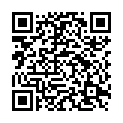|
|
|
| Module code: WIB21-610 |
|
|
2V+2U (4 hours per week) |
|
5 |
| Semester: 6 |
| Mandatory course: yes |
Language of instruction:
German |
Assessment:
Oral presentation im Submodule Moderation and Leadership (50%); Written composition (research paper, term paper) im Submodule: Communication (50%)
Note: Each exam must be passed on its own.
[updated 15.04.2024]
|
Exam recurrence:
The information regarding exam recurrence is found within the exam policy of the study programme (ASPO).
|
WIB21-610 (P450-0293, P450-0294) Industrial Engineering, Bachelor, ASPO 01.10.2021
, semester 6, mandatory course
|
60 class hours (= 45 clock hours) over a 15-week period.
The total student study time is 150 hours (equivalent to 5 ECTS credits).
There are therefore 105 hours available for class preparation and follow-up work and exam preparation.
|
Recommended prerequisites (modules):
WIB21-110 General Business Administration
WIB21-210
WIB21-330
[updated 06.11.2025]
|
Recommended as prerequisite for:
|
Module coordinator:
Studienleitung |
Lecturer:
Dozierende des Studiengangs
[updated 06.11.2025]
|
Learning outcomes:
MODERATION & LEADERSHIP: (Lecturer: Dipl.-WirtschIng. Andreas NOSS)
After successfully completing this module students will:
be able to assess the possibilities and limits of communication tools for avoiding and smoothing out conflict situations
be able to apply knowledge and skills to confidently lead discussion and deal with conflict processes
have mastered the interplay of communication and moderation for employee management and motivation
be able to apply the common methods for mediating decision-making and conflict processes in the company in a targeted manner
be able to use moderation techniques to resolve conflicts arising from different cultural backgrounds in a conciliatory manner
COMMUNICATION: (Lecturer: Dipl.-Sportwiss. Susanne SEELIGER)
After successfully completing this module students will:
be able to name and explain the central characteristics of communication
be able to name and explain the central characteristics of intercultural communication
be familiar with the advantages and disadvantages of different presentation styles and techniques through their own experience
be able to apply basic negotiation techniques
be able to consider and implement different aspects of moderation
be able to distinguish the special features of communication and presentation situations in the engineering environment from those in other environments and be able to respond appropriately in order to achieve their goal
[updated 15.04.2024]
|
Module content:
MODERATION & LEADERSHIP: (Noss)
1. Moderator
2. Communication as the basis for moderation
3. Principles of mediation
4. Guide to moderating
5. Cultural aspects of moderation
COMMUNICATION: (SEELIGER)
1. Principles of communication
2. Communication theories and methods
3. Basics of intercultural communication
4. Communication in the field of engineering
5. Basic negotiation techniques
6. Rhectoric and body language
7. Presentation techniques
8. Moderation and mediation
[updated 15.04.2024]
|
Teaching methods/Media:
Moderation & Leadership: (Noss)
Interactive seminar. After an input phase by the lecturer - using various thematic examples - moderation and mediation processes are prepared and "played through" by the students. In "role-plays" the participants demonstrate that they can implement the content they have learned.
Communication: (SEELIGER)
Regularly revised lecture notes will be published for this course. Work in small groups, flip charts, DVDs and multimedia learning software
[updated 15.04.2024]
|
Recommended or required reading:
Moderation & Leadership:
Edmüller, A./Wilhelm, T.: Moderation; Haufe Lexware; 6.Auflage; 2015
Funke, A./ Havenith, E.: Moderations-Tools; ManagerSeminare Verlag; 6. Auflage; 2019
Hartmann, M./ Rieger, M.: Zielgerichtet moderieren; Beltz Verlag; 6. A.; 2012
Jiranek, H./Edmüller, A.: Konfliktmanagement, Haufe, 5. A., 2017
Redlich, A./Schrader, E.: Konfliktmoderation mit Gruppen, Feldhaus;, 8. A.; 2019
Tirok, M.: Moderieren; UVK; 2013
Kommunikation (Auszug):
Seibert, J. W.: Visualisieren, Präsentieren, Moderieren, erw. 30. Aufl., Gabal 2012
Vogt, Gustav: Erfolgreiche Rhetorik, 3. Auflage Oldenburg Verlag 2010.
Molcho, Samy: Das ABC der Körpersprache, Ariston 2011.
Ebel, H.F. / Bliefert, C. / Kellersohn, A.: Erfolgreich kommunizieren Ein Leitfaden für Ingenieure, 1.
Auflage, Wiley VCH Verlag 2000.
Meinholz, Heinz et al.: Führungskraft Ingenieur, Teubner 2010.
Tenopir; Carol, Communication Patterns of Engineers; John Wiley & Sons 2004.
Watzlawick, P., et al., Menschliche Kommunikation, 12. Auflage, Huber 2011.
Schulz von Thun, Friedemann et al., Miteinander reden - Kommunikationspsychologie für Führungskräfte; ROWOHLT
2008.
Hackenberg, W., et.al.: Key Message. Business Presentations with Structure, Haufe 2011.
Bohinc, T.: Kommunikation im Projekt, Gabler 2014.
Bohinc, T.: Führung im Projekt, Springer Gabler 2012.
Henkel, P.: Besser wirken, mehr bewirken! So überzeugen Sie Kunden und Geschäftspartner mit professionellen
Präsentationen, Springer Gabler 2014.
Birkenbihl, V.F.: Kommunikationstraining. Zwischenmenschliche Beziehungen erfolgreich gestalten. mvg Verlag
2017.
Lecture notes
[updated 15.04.2024]
|

